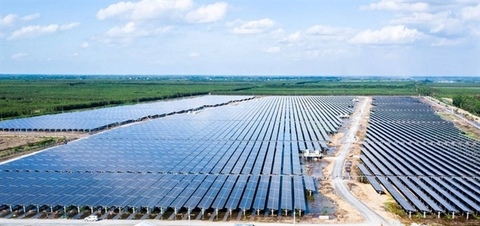VIB in talks with foreign investors for treasury shares sale
VIB in talks with foreign investors for treasury shares sale
Vietnam International Bank (VIB) is counting on surging foreign investment inflows in 2018 to offload its treasury shares to foreign investors as soon as in the third quarter, and is looking to bolster its charter capital through a private placement.
VIB chairman Dang Khac Vy said at the bank’s annual general meeting (AGM) held today in Hanoi that its research team is working with at least five interested foreign partners from the US, the EU, and Japan on the treasury share sales, which is expected to be completed in either the third or the fourth quarter of this year.
“We see a favourable environment that supports our treasury share sales at this time. A number of foreign investment banks with a large pool of spare funds find Vietnam as a destination for their investment. They are indeed very interested to invest in Vietnam,” said Vy.
“We are negotiating with these investors, and should we feel any proposal to be most advantageous, we will try to seal the deal within this year,” he added.
Accordingly, part or all of the more than 33.868 million shares treasury shares, valued at VND718.64 trillion ($31.91 million), following its treasury share distribution to employees as a bonus, will be available to investors.
The treasury shares were bought back in 2017, when VIB was traded at VND22,000 ($0.98) on the UpCom. VIB closed at VND43,000 ($1.91) today.
VIB will also offer 10 per cent of its holdings, equivalent to a maximum of 56.44 million shares, to investors through a private placement this year, as part of an attempt to boost its charter capital to VND8.1 trillion ($360 million).
In addition, the bank is looking to list its stocks on the Ho Chi Minh City Stock Exchange (HNX) later this year or in 2019.
VIB reported a pre-tax profit of VND1.405 billion ($62.44 million) in 2017, doubling its 2016 result and achieving 187 per cent of the target set for the year.
Credit growth, meanwhile, advanced some 26 per cent while its non-performing loans ratio stayed at 2.49 per cent.























